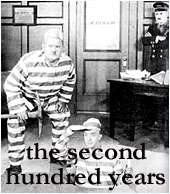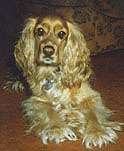foundation
 photo by Mark Haley
She was small for seven, her brother a sickly nine. They leaped across the small quiet stream, hand in hand, and she hated being tugged along. She looked back over her shoulder at the flowing water thinking of the drifting sail boat he made for her in a mystical blue time, preferring serenity to the threatening sky before them. She said,"stop it", but that only increased his firm clench. In her other hand she held the brown sack with bread and one black bottle of root beer. Muffled artillery fire lit the horizon orange like short-lived matches to their daddy's pipe.
photo by Mark Haley
She was small for seven, her brother a sickly nine. They leaped across the small quiet stream, hand in hand, and she hated being tugged along. She looked back over her shoulder at the flowing water thinking of the drifting sail boat he made for her in a mystical blue time, preferring serenity to the threatening sky before them. She said,"stop it", but that only increased his firm clench. In her other hand she held the brown sack with bread and one black bottle of root beer. Muffled artillery fire lit the horizon orange like short-lived matches to their daddy's pipe.
He lead her up the stone path to the bunker before them - an uneven, broken walk-way formed by a rigid foundation of a fortress wall from a long-ago forgotten conflict also scattering the motherless. Inside, the walls had peeled away over the ages revealing make-shift plaster that held its position for an old general with his bunk and binoculars. She fell and tore her knee open on a rusted piece. He licked his hand and wiped the blood away from his little sister's wound. "It'll be alright now", he said, impatient as lieutenant in charge dealing with nuisance. She only stopped crying when he broke open the root beer and let her hold the bottle in both hands. The shelling stopped and he went to where a window used to be and scanned the desolate horizon, his hands cupped into field glasses.
It was dark, raining lightly, and very cold. They were full of stale bread, huddled like dogs asleep. When they awakened at dawn a pale soldier with blackened whiskers towered over them. "What's this then? Are you hungry"? he asked in a language the children did not know. He then remembered an old training pamphlet, and thought it would be best if he smiled at the children. He was ashamed that it wasn't natural like with his own children.
Many years later the girl broke down, wiping tears from her eyes, as she broadcasted from a small studio with lighted dials over the international wireless how her brother was crying, screaming, and kicking the man with the patch of red, white, and blue below his shoulder, and how another large soldier with missing front teeth had his arm around the boy, comforting in a kindly assurance. And she'd tell of the mismatched button-eyed doll under the Christmas tree with her name on it, how they let her keep that doll forever, handing it down to her daughter, soft to snuggle like a feather pillow. She would compose herself in dead static air and repeatedly thank the man, leaning in to the microphone, hoping he could understand her careful english a million miles away.
road side
An old sullen and cobwebbed road side stand selling disfigured tomatoes and puny beans now features neatly stacked bright orange pumpkins ready to be carved sporting mischievous black grins, or buried with crust in dull gray pie tins. And passing by slow on a sweatshirt day makes me feel eleven years old for a moment as one pumpkin amongst the others, already grinning, calls my name in a screaming hush.
in autumn
 The Moth and the Lamp, Cesar Santos
The Moth and the Lamp, Cesar Santos
Last touch summer light
Night douses after hour glow
Warm heart autumn chill
battle for the isle

The bell of St Ninian's Church only rang once. Only that one time. I wrote down as much as I could remember, and from time to time fragments arise and I recount events to anyone close. We held Holm's Height with relative ease, the ports were ours, and Fauchin House yielded a wonderful lighthouse view as Commander Compton's headquarters. Stores, gun powder, warm clothes, and firewood were well-stocked at strategic inland caves, lees that were faithful defenders of frequent gales. But there was mass desertion as men grew weary of long lonely vigils, some drowning as they tried to escape, swimming against heavy waves in despondent madness.
There were no women on the outskirts. They huddled far inland, hidden in cellars, some deserters hiding in dugouts under the cellars, women arising from shadows to bring in white undergarments and diapers off of clotheslines that managed to avoid wayward cannonballs shot from the coast. Strong winds sometimes tore those clothes away, men on lookout with glasses watching underwear on a lift sail in the sky above and out to sea, a reminder of the loneliness. Compounded with the sheer dryness of no pints of beer to be had, morale was at an all time low. We were strong but there was still no beer, no whiskey. Rumor spread quickly that Father Mackenzie knocked off the last of it, men in small groups looking down at their torn shoes, repeating that it was alright then, it was just and proper it was, Jamie.
Somehow we made it through that terrible ordeal, war ended, a treaty was signed by men with soft hands and powdered faces, all eventually quieted down, no more flying underwear, peace at last, young men wearing their uniforms for weeks afterwards to impress plain-face girls in their villages. The whiskey and beer arrived on a Sunday morning, contracted by fine swirly writing on the last page of the treaty, rattling over the main bridge in a convoy of unmarked carriages directed by right-of-way serious men, and landing on sandy shore, bobbing in cushioned crates by boat. And the church bell rang at last, peeling the clouds away in glorious E-Flat, revealing heavenly lathered mustaches throughout the island Sunday afternoon.
I, for one, wept.
another first trip

Boy In A Dining Car
Norman Rockwell
Everytime Billy went away seemed like the first trip to his mother. The same twenty dollar bill was hid in his shoe in case of emergency. But an emergency never occurred in his five-hundred mile traverses. Last time home he had removed the money while sitting on the edge of his bed, noticing the fold brittle and splitting in-between Andrew Jackson's eyes, wondering what the man could see in the distance with one eye.
They would wave to one another, mother smiling in grief from the porch, as his uncle drove away slowly in his truck, searching with a grind for second gear, destination Santa Tessa Train Depot. And when Billy came home she would tell him the little dog cried in the night when he was gone, but Billy's first adult thought ever told him it was his mother's cry.
'Good morning, Mister Charlie', he would say each trip at the first breakfast, waiting like a true gentleman, hands clasped behind his back, pretending patience to be seated in a state room, Charlie the waiter wearing an isabelline apron, so pleased to see the young man with the unprejudiced gaze. That's what he called him.
'And a good morning to you, Young Man'.
'I'll take one of everything, Sir', was the joke each trip, on the joke-less train ride to his father's city house where there was a younger woman not his mother that slobbered on him.
'One thing each it shall be, Young Man', Charlie would reply seriously.
'Don't worry. I have a twenty in my shoe if I don't possess enough coin'.
And Charlie would laugh. To hear a black man laugh is a joy he wanted to be a part of, for Billy never heard that lasting mirth that rose in pitch where he came from. It was almost like an inside-joke, one you'd hear if you were alone in a dark nightclub listening to a Dixieland Band rehearse, and they'd stop and share a musical downbeat joke that you knew nothing about but wanted desperately to be a part of. That was Charlie's laugh, and he was so kind, plus Billy thought he smelled like a kitchen.
Charlie would walk away, and Billy would hear him fade away, laughing and saying, 'Young Man, we all should have an extra twenty in our soul'.
climbing down

artwork by Jeanie Tomanek
'Im not coming down and you can't make me', she yelled back at the house. 'They can have their caged birds and humorless bad poetry readings about caged birds bustin' out, and freedom and such', she whispered loudly to the white bird. 'You know, the ones on sanded wood stages with audiences watching the cigarette smoke rise and nodding their heads like they're worldly creatures. Thick and slow baritones dramatically pausing like tree sap through a clogged tap. So people decipher if they mean there their or they're, looking down at their shoes until someone coughs. And it's not so much the smoky filled room as everyone wondering if people notice how they're holding the cigarette. Make smoke come out of your ear and I'm your friend for life. I'm staying up here'.
'What's in the basket', the bird said.
'I'm carrying some lovely seed just for you,' she answered.
The bird shook it's smooth satin feathers, finishing with split-end feathers prime for a pillow, then looked at the odd woman's forehead, noticing how it resembled Sylvia Plath's smooth skin back in the glory days when its penciled-in flight path migration was window ledge landings of tormented writers, hanging on for dear life as strong winds blew between tall concrete high-rises.
'You said last time you'd wrote a panegyric poem for me', the bird said.
It reminded her, and her faced burned. 'They can have their damn poetry readings and leave me out. I'm not climbing down'.
'Yes. Yes, you just might lose your footing. You're not worthy of a dead poet', the bird said sadly.
 11,041 vagabonds plus:
11,041 vagabonds plus:

Web Counters
All original designs and text created by the author of this blog, Phil L., are licensed under a Creative Commons Attribution-NonCommercial-ShareAlike3.0 License. All other materials remain the property of their respective owners and/or creators, unless of course they are part of the public domain.












